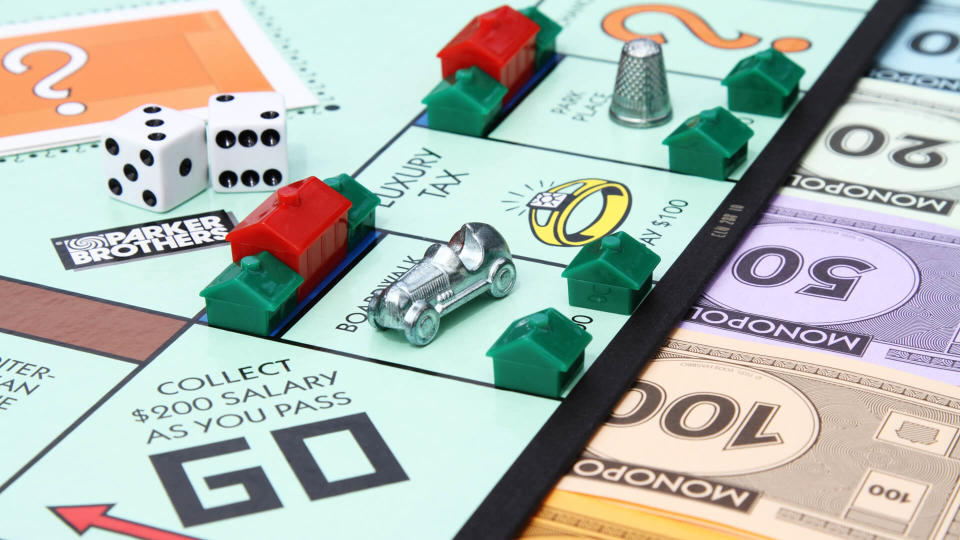What Monopoly Teaches You About Real-Life Money

Monopoly first hit shelves in 1935, and since then, more than 275 million game sets have been sold, Time reported. Although the game is ostensibly about buying and selling Atlantic City real estate, there are a number of valuable money lessons you can learn from playing the ever-popular board game.
Helpful: How To Rebound From a Bad Financial Year: 2020 Edition
It’s Better To Invest Your Money Than To Stockpile Cash
“Although having an emergency fund is a great idea, there are important drawbacks to having too much cash,” said Andrew Latham, certified personal finance counselor and managing editor at SuperMoney.com. “It’s like Monopoly players who keep a tight grip on their initial $1,500, stash away every $200 they get for passing go, and never invest in properties or hotels. Sure, they may be cash-rich at the beginning, but they will never win the game. Of course, life isn’t a zero-sum game, so you don’t lose at life because you save too much, but it is certainly suboptimal to have a large cash reserve languishing in a checking or savings account — your money doesn’t grow. In fact, you will most probably lose money every year to inflation.”
See: 4 Investing Lessons the Pandemic Has Taught Us
Once you have three to six months of living expenses saved up in a savings or checking account, start investing money in vehicles that will give you a higher return like CDs, stocks or real estate.
Don’t Overextend Your Finances
While you shouldn’t just sit on all your cash, it’s also a bad idea to go the opposite route and invest in or buy more than you can really afford.
Monopoly “teaches you about leverage and the negative impact,” said Morris Armstrong, founder and owner at Morris Armstrong EA LLC. “You can buy properties as you accumulate cash and even mortgage a property to get more cash. You can improve the lots and collect rents — until you get that card that assesses all your properties and you do not have the money to pay that special assessment. Maybe a little less aggressive borrowing policy would have kept you in the game. Do not overextend!”
Find Out: 31 Hidden Ways You’re Bleeding Money Every Month
High Price Does Not Equal High Value
“People covet the most expensive properties — Board Walk and Park Place — but they are actually not the best deal,” said Ilian Georgiev, CEO and co-founder of the debt management app Charlie. “To maximize your chances of winning, you actually want to own Oranges, followed by the Yellows and Reds. Look for the best value, not the highest price.”
The same is true when it comes to investing in the real world, whether you’re looking to invest in real estate or the stock market.
Cut Costs: 35 Useless Expenses You Need To Slash From Your Budget Now
Being Able To Negotiate Is a Key Skill When It Comes To Your Financial Well-Being
“One of the few places where skill actually comes into play is negotiations,” Georgiev said. “Outside of luck, that is the main factor to determine if you win or lose. Learn to negotiate — but be nice.”
Don’t hesitate to negotiate whenever possible — asking for a better deal for your cable bill or car insurance, or asking for a raise at work can help your finances to flourish.
More From GOBankingRates
Last updated: Feb. 3, 2021
This article originally appeared on GOBankingRates.com: What Monopoly Teaches You About Real-Life Money
